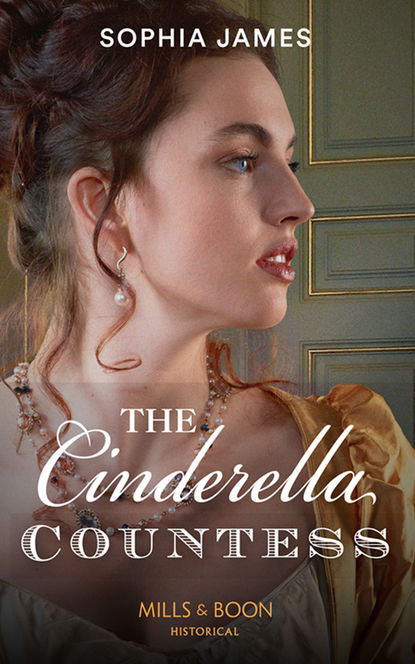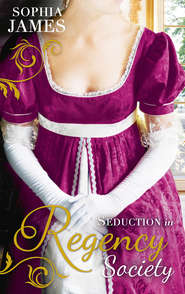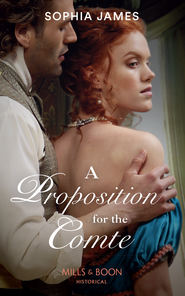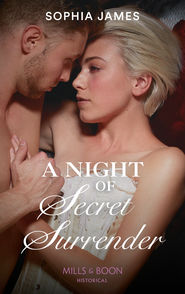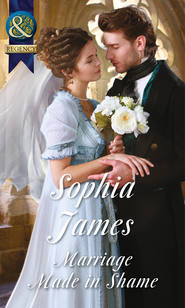По всем вопросам обращайтесь на: info@litportal.ru
(©) 2003-2025.
✖
The Cinderella Countess
Автор
Год написания книги
2019
Настройки чтения
Размер шрифта
Высота строк
Поля
Instead of answering his question she found one of her own. ‘How did your father die?’
Her words were bare and shock ripped across his face.
‘Why do you wish to know that?’
‘Your sister said something that made me wonder.’
‘What did she say?’
‘She said that you were a thousand times better than he was.’
‘Hell and damnation.’
She could not believe that she had heard the Earl swear in front of her and thought he might apologise for it, but instead he turned to look out of the window as he spoke again.
‘He killed himself.’
He had asked her if she was a religious woman once and said that he did not put much stock in prayers. But she could see it did mean something, after all, for shock was etched on his face. He believed his father consigned to hell just as his sister did. A permanent banishment. An unchangeable tragedy.
‘When did this happen?’
‘Two Christmases ago. He gambled, you see, and lost. At least when I sit at the tables, I win.’
‘What did he lose?’
‘Balmain, the Thornton family estate. I got it back for him by the luck of a full flush a week later and he was not thankful.’
‘The sins of the father are to be laid upon the children.’
‘Words from the Bible?’
‘And from William Shakespeare’s The Merchant of Venice.’
‘You are a mine of information, Miss Smith. From witchery or just plain and constant reading?’
‘What do you think?’ She couldn’t add his title, not even if her life had depended on it, for here in the carriage there was a sort of equality that simmered between them and an energy that she had never felt with another.
‘I think you watch people and listen with your heart.’
‘You do that, too, my lord.’
This time he only smiled.
* * *
Belle steeped medicines and pounded tinctures and she charged nothing to a hundred patients who could afford very little. She brought warm clothing and blankets for the babies and she found packs of cards and puzzles for those with time to while away at the very endings of their lives. She paid for shoes that were not scuffed to within an inch of their existence and found oranges and fish fresh from the stalls in the market on Whitechapel Road. She noted down everything, every small and tiny charge, and sent the Earl of Thornton her reckoning two days before she was due to visit next.
Within an hour she had a message back.
That’s the best ten pounds I have ever spent.
She was pleased for such an assurance. His handwriting was strong and flowing, the b’s and p’s were fluted in a way that made her smile. She brought the paper to her nose and breathed in, the scent of ink the only thing discernible.
What had she wanted it to smell like? Him?
Swallowing, she placed the note down carefully on her desk and crossed to the mirror, peering at herself once she was there.
She was not beautiful, nor perhaps even mildly pretty. Her hair was unremarkable and she had a tooth that did not sit at the same angle as the others. Her eyes were also far too blue to be restful.
She spoke well, she read widely and she helped others. These were her attributes. Searching her mind, she probed for the other distant truth that lay hidden well away from sense.
She wanted the Earl to like her. With more than respect. More than esteem. She was enough of a woman to have read the books on filial love, and on lust and on sexual endeavour. She had devoured Fanny Hill by John Cleland and read the compendium of poetry by the Earl of Rochester, clandestinely, under her bed sheets at night. The novel Justine had come into her hands through a bookseller in London for whom she had made medicines and she knew the erotic works of the Greek poets Strato and Sappho. She was no prude even if she was still a virgin.
But she was lonely.
She was also thirty-one, almost destitute, nameless, without family, and inclined to strange dreams at night that made her question her sanity come the morning.
The sum of being abandoned sat on her like a weight, altering worth and condemning certainty. No man had ever come near her in the way of a suitor. Did she repel them or was she simply repellent?
These thoughts of wanting more and wanting it with a man like the Earl of Thornton were witless and unwise.
He had only ever looked at her in the way of an oddity, a woman who did not fit into any of the boxes the men of the ton needed their women to inhabit.
Appearance was not important to her and yet she was drawn to Lord Thornton’s beautiful face with an ache. The wealth of a person was also a factor that had held no real weight. Yet the Earl’s pounds had paid for things she would never have been able to procure otherwise, things that eased the wretched life of those struggling with very survival.
A conundrum and a puzzle.
She should take heed of his mother’s warnings and make certain that she was soon gone from the lives of the Thorntons. Yet she couldn’t. Lady Lucy needed her and, if truth be told, so perhaps did the Earl. To make him happier. To bring a smile across the sadness in his eyes.
They were right, these poets and novelists of long ago. The erotic hopes of a body were hot and heady things. Her hands ran across her breasts, nipples standing hard and proud.
She was not immune after all to the charms of men. No, she shook her head and rephrased. Not men, but one man. The enigmatic and beautiful Earl of Thornton. She knew it was stupid. But there it was. Unarguable.
* * *
Lytton smiled at the letter Annabelle Smith had sent him. Fish and stockings, blankets and coats were not things he usually read of, but each item here had been qualified with the person who had received it and that was what made it fascinating reading.
A young child with a chest complaint that was ongoing, a housewife pregnant for the eighth time in one of the winding and narrow alleys off the Whitechapel Road. An old soldier without a leg who was nearing sixty and needed a pack of cards to fill in the hours of a lonely day.
Numbers had always been simple things for him and if his father had squandered the coffers of the Thorntons’, then he had refilled them ten times over. Easily. But these pounds that he had accrued also lacked depth, no story behind them save that of an investment.
His mother’s voice brought him from his thoughts and he watched as she came into the room, a book in hand.
‘Have you seen what your healer has left Lucy?’
He looked up and shook his head as the small tome with blue ribbons was delivered with force to his desk.
‘Mrs Mary Wollstonecraft writes that men and women need educational equality and is critical of conventional women. If one were to believe in her premises, where would society be? Washed up, I tell you, each wife and mother attending to her own needs and not to those of her husband and her children. Books like this are a disgrace, Thornton, and one you need to be aware of and forbid when the insidious opinion comes beneath your own roof, crawling into your sister’s consciousness.’





